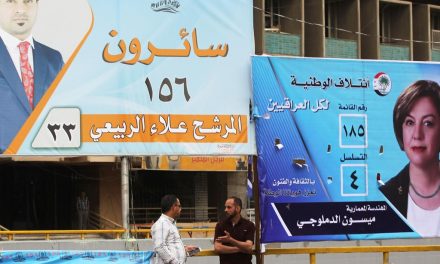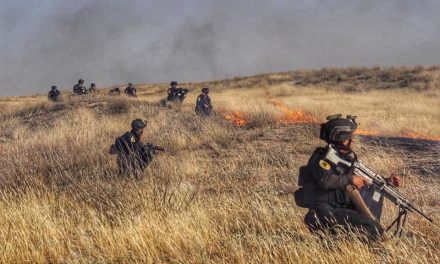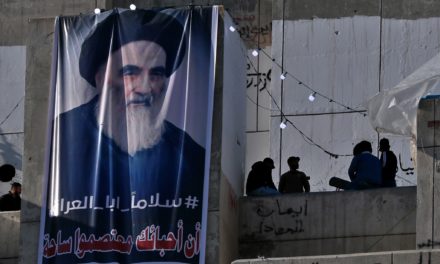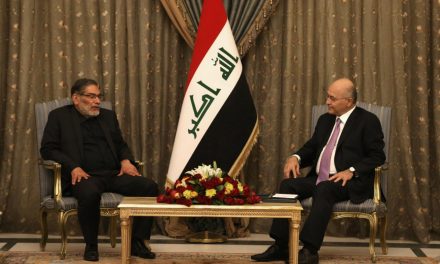The de-facto president of the Kurdistan Regional Government (KRG), Masoud Barzani has found himself losing the support of all his allies after rejecting to comply with their demands to postpone the referendum. With Barzani desperate to remain in power and regain the support of his allies, he is now pushing for a war with the federal government of Iraq as he sees this is the only possible way to achieve his aims.
A letter from Secretary of State, Rex Tillerson to Barzani two days before the referendum reveals that the United States planned to back the KRG throughout the talks with Baghdad and if there was any failure from Baghdad’s part to comply, then the United States would support an independence referendum for Iraqi Kurdistan. However, the momentum of the referendum grew too strong for Barzani to stop, as it would have been political suicide for him to backtrack at that point. Already beyond his legal mandate, there was little legitimacy for Barzani to survive cancelling the referendum.
As a result of being unable to stop the referendum, Barzani has found his closest ally, Turkey and neighbour Iran both angered by his actions. Going against the advice of the United States, Barzani is also finding himself cornered without the support of Washington as Prime Minister Haider Al-Abadi has taken a constitutional approach to rectify the situation as Barzani attempts to create unnecessary divisions amongst Iraqis at a time of nation-building post-Mosul liberation This marked the end of the Abadi-Barzani alliance, which for the past three years has kept their political rivals at bay.
In response to the referendum, the federal government has stopped all international flights from entering Erbil and Sulaymaniyah, forcing travellers to enter and exit Kurdistan region through domestic flight from Baghdad, Najaf and Basra. This allows the federal government to enforce Iraqi visa requirements that were being bypassed by the KRG. The federal government has also taken financial measures against Kurdish banks that are not complying with federal regulations. These are measures by the federal government to curb Barzani’s economic power from taking advantage of the lack of federal authority on federal matters. While the argument could be made that this should have been done a long time ago, the fact that Barzani proceeded with the referendum paved the way for Abadi to exercise Baghdad’s federal authority over the Kurdistan region without opposition from the United States and the international community.
Abadi could have been much harsher but as he stated in parliament, his intention is not to punish Kurdish citizens, but those who attempted to divide Iraqis. Abadi has also kept the opportunity for Barzani to return to the negotiating table to settle differences that the United States was pushing for prior to the referendum. However, Barzani has failed to comply with the federal government’s demand to negotiate only if the referendum is voided. Abadi has also called for joint security control of Kirkuk and other disputed areas that fall under Iraqi jurisdiction but have been taken over by Peshmerga forces. Abadi stated the administration of the city must remain under the federal government but has offered to meet Barzani half way by allowing a joint security presence of the Iraqi Security Forces and Peshmerga. Barzani rejects that offer as well.
Despite Abadi’s openness and diplomatic approach to the situation, Barzani refuses to meet him half way both in voiding the referendum results to open talks and in accepting joint security in areas the Peshmerga have illegally occupied. Barzani’s stubbornness and desperation have made for a bad combination to regain foreign support and maintain land grabs from the past three years. In doing so, Barzani is pushing for war with the federal government over disputed territories instead of joint control over security. This is seen most significantly in Kirkuk, where the Iraqi Security Forces liberated the southern part of the province and have come to the borders of Kirkuk city. Barzani is now claiming Iraqi forces’ presence on the border of Kirkuk as a result of liberating Hawijah is to amass and fight the Peshmerga, Despite the federal government and security leadership in Baghdad denying those claims or having any intention to engage in a battle with the Peshmerga, Barzani and his eldest son in charge of the Security Council of the KRG, Masrour Barzani, are pushing this threat in the hope of war.
The Barzanis see war as the only possibility of regaining the international community’s support, as they would frame it to the world that Baghdad is once again oppressing the Kurds like previous regimes did. They want to show that Baghdad is more focused on fighting the Kurds instead of liberating the rest of Iraq from Daesh militants. The Barzanis are pushing for this war by continuously claiming threats from Iraqi forces and highlighting Iran’s involvement in these threats to gain the support of anti-Iran hawks back in Washington. They are also framing Kirkuk as a Kurdish province under the KRG and Iraqi forces are going to invade them despite the fact all of Kurdistan region is still within the Iraqi state and Kirkuk in particular is under the federal government’s jurisdiction. But as long as the Peshmerga are present outside KRG’s borders, they will frame any engagement as an invasion and an instigation of war by Iraqi forces.
This is a very dangerous development and the possibility of Barzani going through with war is a strong possibility. Barzani is no stranger to civil wars having fought one against fellow Kurd, Jalal Talabani, and the PUK in the 1990’s. During the civil war, Barzani allied himself with Saddam Hussein to push out Talabani from Erbil. Barzani’s alliance with Saddam happened after Saddam’s attempted genocide of the Kurds with attacks on Anfal and Halabja. Barzani’s authoritarianism and nepotism has been ignored by the United States and the international community for too long and must not stand for another war to take place because of Barzani. Especially with a government and leadership of Abadi in Baghdad open and willing to settle all matters peacefully, the possibility of war is avoidable and will only result in lives lost to keep Barzani in power.

Hamzeh Hadad
Hamzeh Hadad is an Iraqi writer and commentator. He is currently a Master of Arts candidate at the Norman Paterson School of International Affairs.










